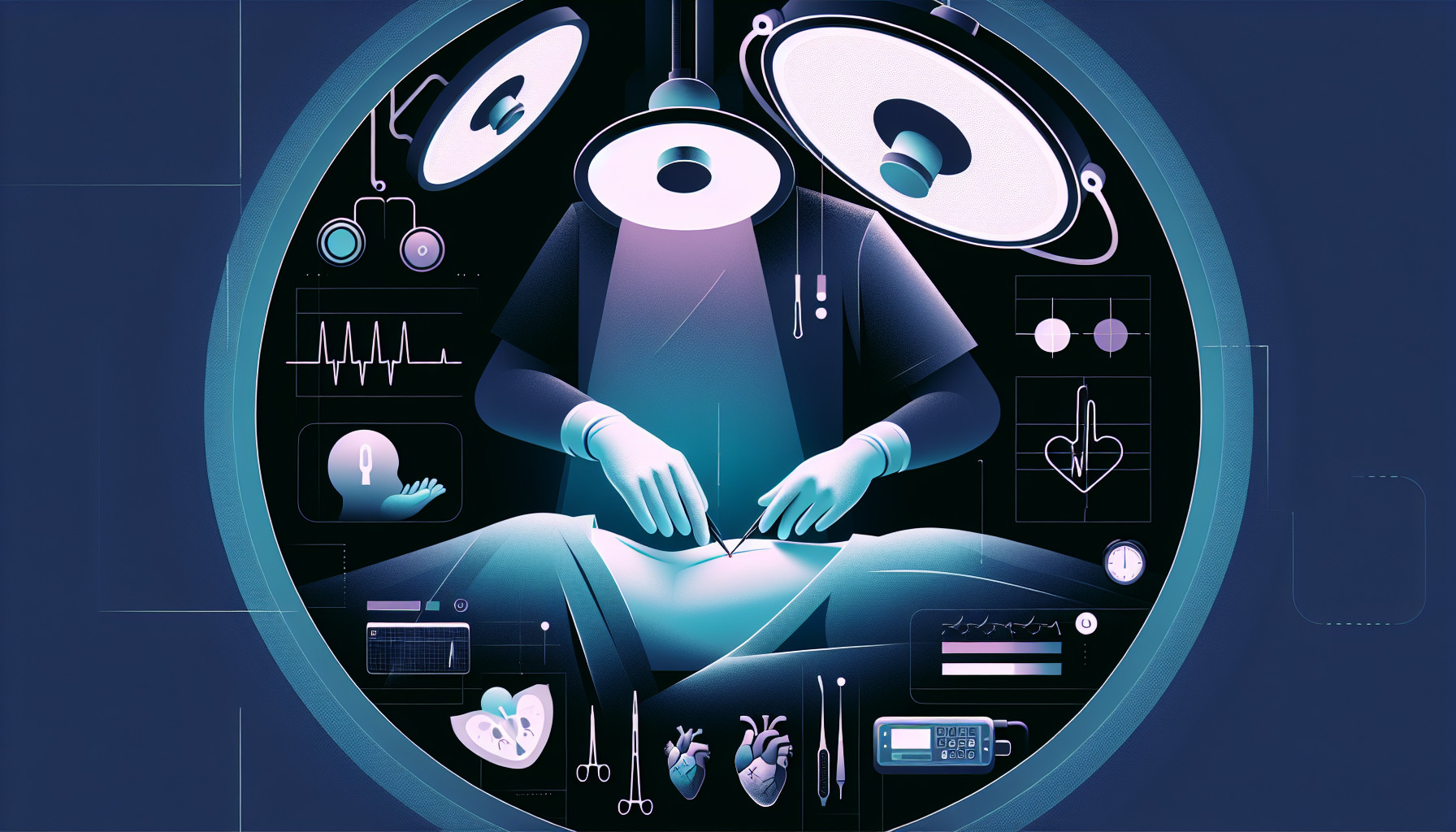Our Summary
This study is going to test whether a drug called esketamine can help to prevent depression symptoms in women between the ages of 45-60 who have had a certain type of breast cancer surgery. The women in the study will be split into two groups, with one group receiving esketamine and the other receiving a placebo (a substance with no medical effect). The researchers will then monitor the women’s mental health, as well as other aspects of their recovery, over a period of 180 days. The aim is to see if esketamine can help improve the mental health and overall recovery of these women after their surgery. This is the first time a study like this has been done.
FAQs
- What is the purpose of the study on esketamine and its effects on women who have undergone breast cancer surgery?
- How will the effectiveness of esketamine be measured in this study?
- Is this the first study to explore the potential benefits of esketamine on mental health after breast cancer surgery?
Doctor’s Tip
One helpful tip a doctor might tell a patient about radical mastectomy is to follow a personalized exercise program to help regain strength and mobility in the affected area. This can help improve overall physical function and quality of life after surgery. Additionally, it is important to attend regular follow-up appointments with your healthcare team to monitor for any potential complications or signs of recurrence. Remember to communicate any concerns or changes in your health to your doctor promptly.
Suitable For
Patients who have undergone radical mastectomy, which is a surgical procedure that involves the removal of the entire breast, including the breast tissue, nipple, and some surrounding lymph nodes, are typically recommended for this procedure. This type of surgery is usually recommended for patients with large or aggressive tumors, or those with a high risk of cancer recurrence. Additionally, patients with certain types of breast cancer, such as triple-negative breast cancer or inflammatory breast cancer, may also be recommended for radical mastectomy.
Timeline
Before radical mastectomy:
- Patient is diagnosed with breast cancer and undergoes various tests to determine the extent of the cancer
- Patient discusses treatment options with their healthcare team, including the possibility of a radical mastectomy
- Patient undergoes pre-operative preparation, which may include imaging scans, blood tests, and consultations with surgeons and anesthesiologists
- Patient undergoes the radical mastectomy surgery, which involves the removal of the entire breast, surrounding tissue, and possibly lymph nodes
After radical mastectomy:
- Patient wakes up from surgery in the recovery room and is monitored closely for any complications
- Patient is discharged from the hospital and begins the recovery process at home, which may involve pain management, wound care, and physical therapy
- Patient may experience physical and emotional challenges, such as pain, swelling, fatigue, and body image issues
- Patient may undergo post-operative treatments, such as radiation therapy, chemotherapy, or hormone therapy
- Patient undergoes follow-up appointments with their healthcare team to monitor their recovery and discuss any ongoing concerns or side effects
- Patient may participate in support groups or counseling to address any emotional or psychological effects of the surgery
Overall, the timeline before and after radical mastectomy involves a series of medical procedures, emotional challenges, and ongoing support to help the patient navigate their recovery and adjust to life after surgery.
What to Ask Your Doctor
- What are the potential benefits of esketamine in preventing depression symptoms after radical mastectomy?
- What are the potential risks or side effects of taking esketamine?
- How will my mental health be monitored during the study?
- How will the researchers ensure that the study is conducted ethically and safely?
- How long will I be required to take esketamine or the placebo?
- Will I be able to continue other medications or treatments while participating in the study?
- How will my overall recovery be measured and evaluated during the study?
- What happens if I experience severe side effects or complications during the study?
- Will I be informed of the results of the study once it is completed?
- Are there any other treatment options available for preventing depression symptoms after radical mastectomy that I should consider?
Reference
Authors: Liu LL, Hu JH, Pan JJ, Liu H, Ji FH, Peng K. Journal: Int J Gen Med. 2023 Aug 8;16:3373-3381. doi: 10.2147/IJGM.S421265. eCollection 2023. PMID: 37576915
